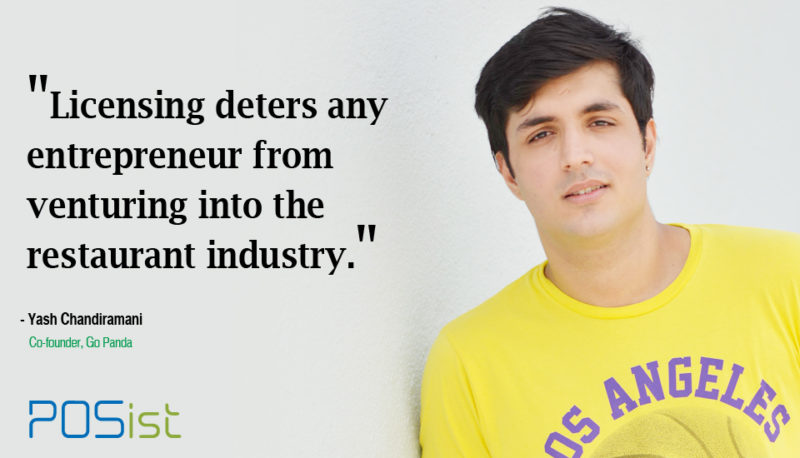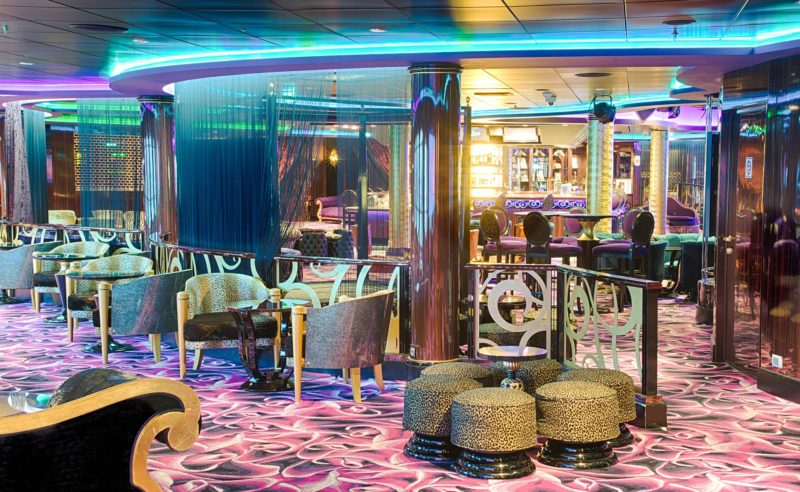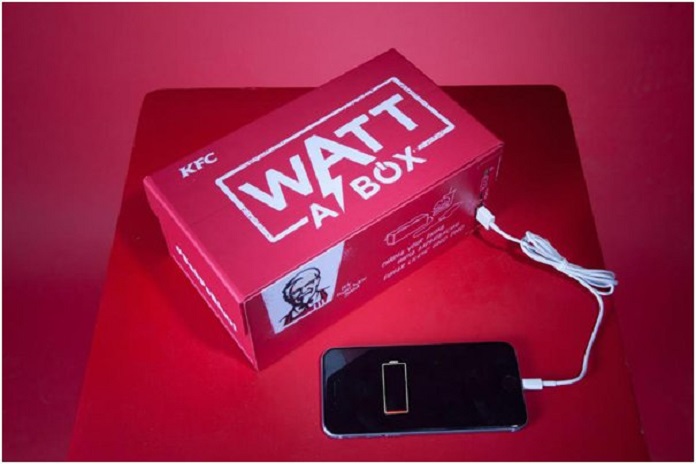Go Panda, a fusion of Pan-Asian Cuisine and the Fast Food Culture aims to serve the funkiest dishes in the most innovative way. Situated in Andheri West, the QSR has attracted a lot of attention of the local audience. The QSR has been featured in the Vogue Magazine for having one of the best menus in Mumbai, especially for summers. Some of Go Panda’s famous dishes are Som Tam Salad, Lap Kai Salad, and a Singaporean baida roti, which has brought the QSR in the limelight.
In Conversation with Yash Chandiramani of Go Panda
Yash Chandiramani, Co-Founder, Go Panda shares his experience with The Restaurant Times on having a Pan Asian Cuisine in a QSR format which is a not so common in the food industry. Edited excerpts…
Posist: When did you think of opening up your own food outlet? What were your initial thoughts about the business? What was your approach?
Yash Chandiramani: I was in marketing business of nightlife since the age of 18. The idea of having my own food outlet always enthralled me. By the time I was 22, the market had drastically changed, everything was a touch away, on the go, and very pocket-friendly be it restaurants or any other form of retail. So, I thought of having a quick service restaurant model. The industry was lacking in serving gourmet food at a quick service level. Entrepreneurs were so busy designing apps and tracking features for their delivery restaurant that they forgot the primary goal, which was great tasting food. So, we used that approach to enter the market.
Posist: At the initial stage, there are lot challenges an entrepreneur face in building any business from scratch. Please throw some light on the challenges you faced and how did you overcome them?
Yash Chandiramani: At the very initial stage, we made a list of problems that could occur and how we would solve them. But it’s funny that none of the problems from that list ever occurred. It was different instead; every day we faced a new challenge that we hadn’t even thought of. Being from a marketing background, it was an interesting for us to learn production and operations. Other than that, procurement was another issue altogether, and finance planning was something we hadn’t planned at all. But, in the matter of 3 to 6 months down the line, we ironed all these issues out. To overcome the issues in the restaurant business you have to be hands on. If you’re not present at your place of work every day you won’t know the problems, and hence finding the solution would become a lot more difficult.
Posist: What is new with Go Panda? How do you differ from other QSRs in the market? Who is your target customer?
Yash Chandiramani: The speciality of our outlet is our funky cuisine. Yes, we are an Asian restaurant, but most of our dishes are unheard of since they are our own innovation and creation. For instance, the Wasabi teriyaki-infused sloppy Joe sandwich, the Asian fish tacos, Asian burgers, Singaporean baida roti. We have some popular dishes but the Go Panda version of them: KhauSuay, Thai Jungle Curry, Fish in Mustard sauce. Second is the way we serve our meals which authentic and eco-friendly. We serve all our meals in earthen pots that can be reused and does no harm to the environment.
Our target customer is anyone tired of dressing up and footing a big bill just so that he/she can enjoy a great tasting meal. It’s also for people who are tired of the same old Manchurian and Schezwan Chinese which is quite common in the Indian food market.
Posist: How do you market your Go Panda? What is the marketing mix you follow?
Yash Chandiramani: We use both offline and online medium to reach to our customers. We regularly do flyer distribution in the localized area, which is one of the mediums, and other than that we use Zomato to reach out. But the majority of our marketing happens through Social Media. Apart from Go Panda, I have my own digital media agency where we market brands online and through social media. Hence, our focus has always been to get our brand really interactive and highly engaged with the audience online, since this is what we do the best.
Yash Chandiramani: Social media is one place where the brand listens and customers speak, and the brands reply to the customers on the spot, and this kind of gratification is unmatched in any medium. The best way to collect information with regards to what your audience wants their experience etc. Like I mentioned earlier, social media marketing is one of the most important tools to reach to the customers, having a vast reach. We are organically growing our Facebook page and Twitter handle.
Posist: What are your views on employee retention and their motivation?
Yash Chandiramani: We treat our employees as one big family. When there’s a good review we celebrate together when there is a bad one we introspect. We usually know that being in the restaurant industry our chefs and front staff misses out on festivals and big days, so we make it a point as founders to be there with them whether it is New years eve, or Christmas, or Diwali. We always are present on such days and are a part of the operations so that they don’t feel left out.
Posist: How about licensing and policies to operate your business? Was it streamlined easily?
Yash Chandiramani: Licenses are obviously something that deters any entrepreneur from venturing into the restaurant industry. The problem is not to procure them; it is having knowledge of these licenses. There are some licenses only certain restaurants require, also the size of your place makes a difference in which license you should apply for.
Mainly you have the health license, shops and establishments, Fire NOC and police NOC. Others highly depend on what kind of place you have. Also, there is some compliance that is not specific to the business like a provident fund for employees and ESIC etc.
Posist: How do you see food industry growing? What are the upcoming food trends in Restaurant and hospitality industry in 2016?
Yash Chandiramani: Quick service is going big in India, especially in cities like Mumbai where the corporate culture has kicked in and people are running short on time. Restaurateurs have become more creative trying to innovate more than the previous restaurant launched, hence 2016 will be the year of a lot of creative and unusual restaurants. The food tech and “website restaurants” will have their fair share of fun, but I don’t see them really going places.
Posist: How do you sum up 2015? How do you see coming years of your business?
Yash Chandiramani: 2015 was excellent, and even though the market was tough and retail was slow, we managed to do pretty well for ourselves. People are aware of Go Panda in our area now and people outside the area are always asking us to open another branch there.
Stay tuned to The Restaurant Times for more updates on the type of licenses required for any type of food outlet…



















